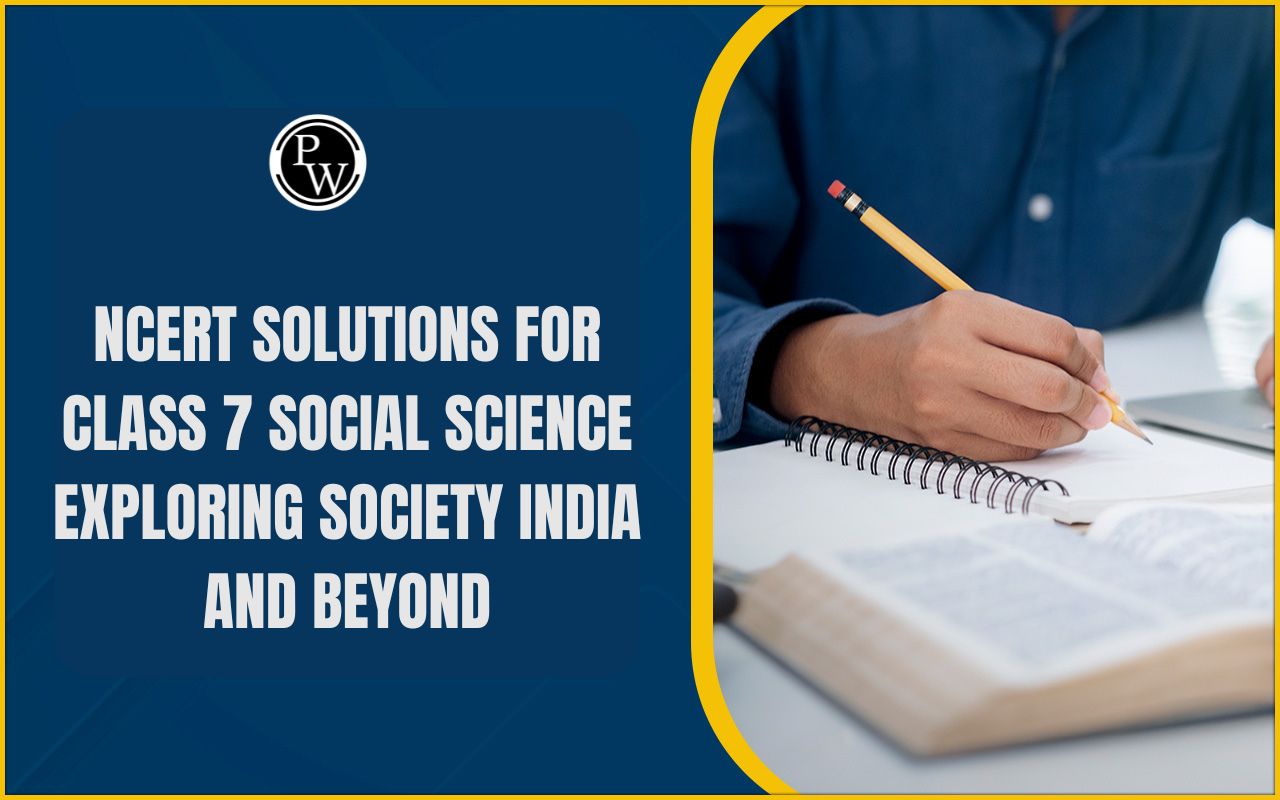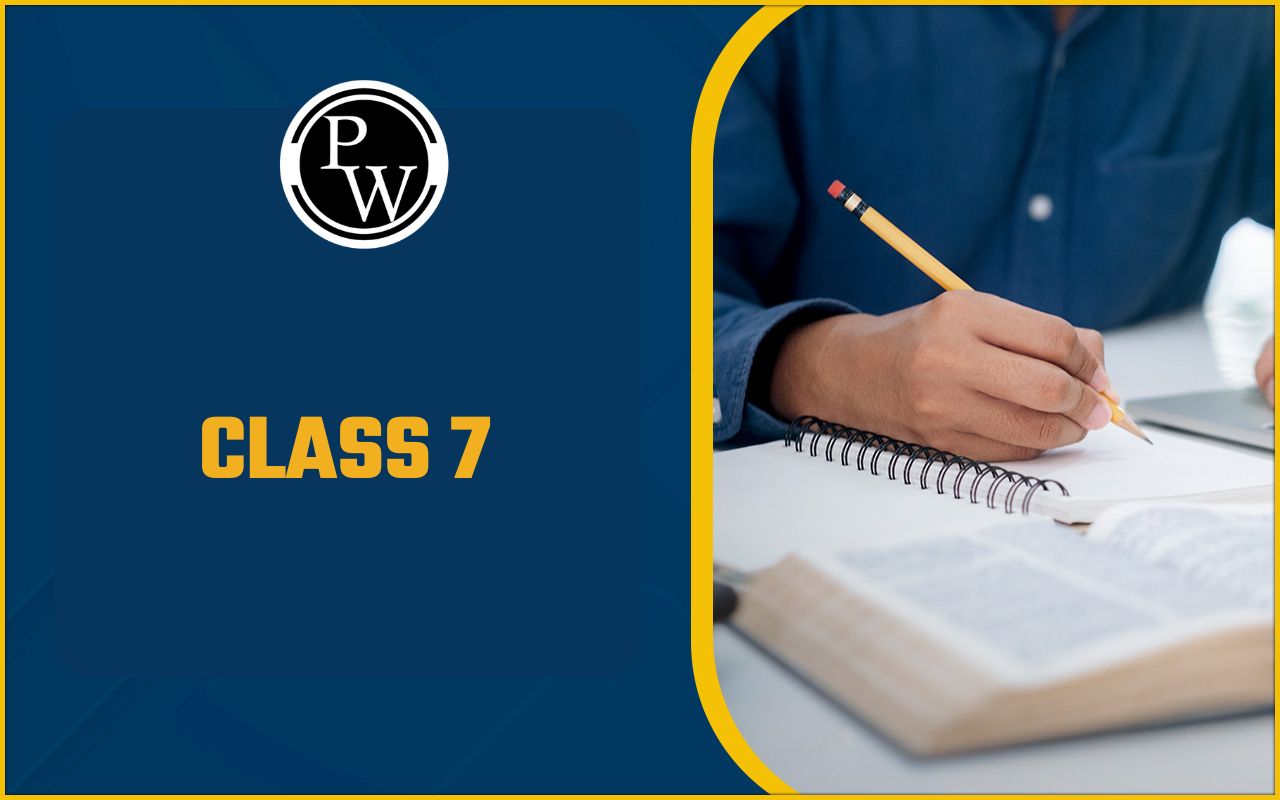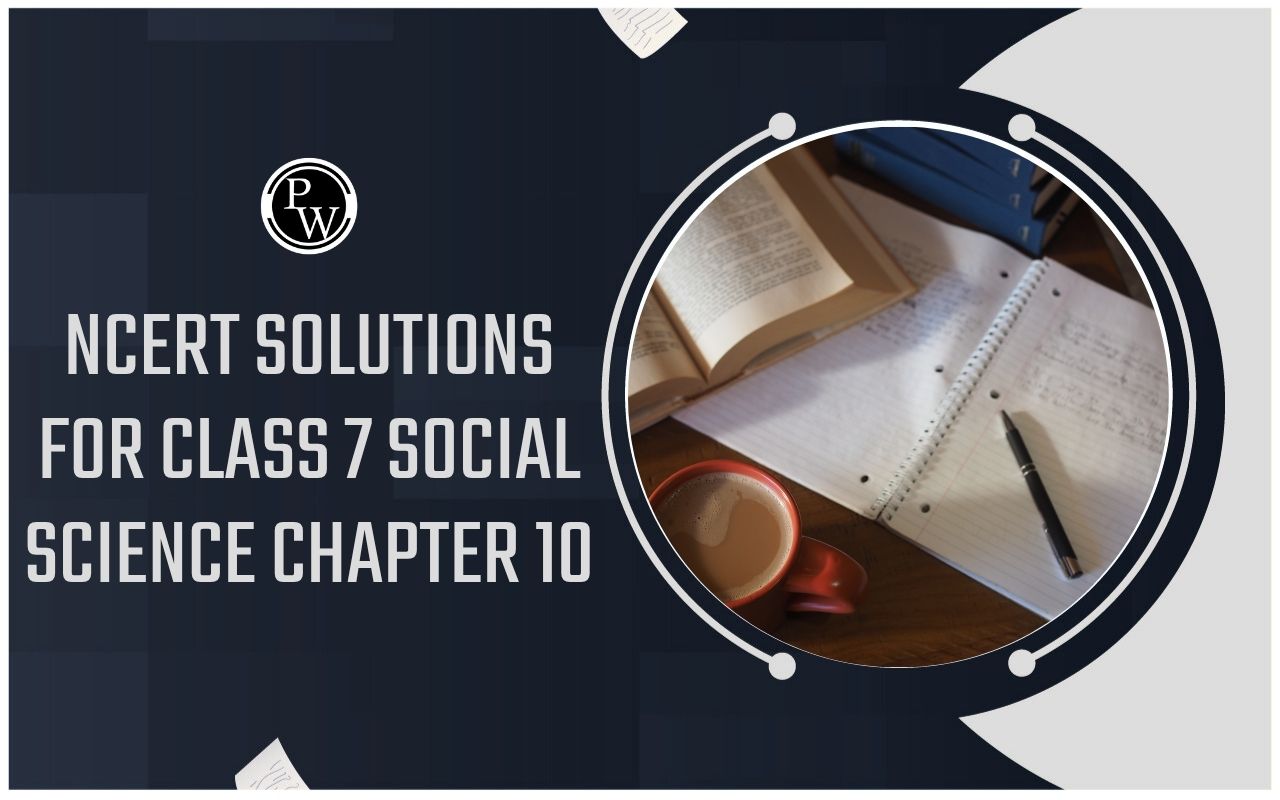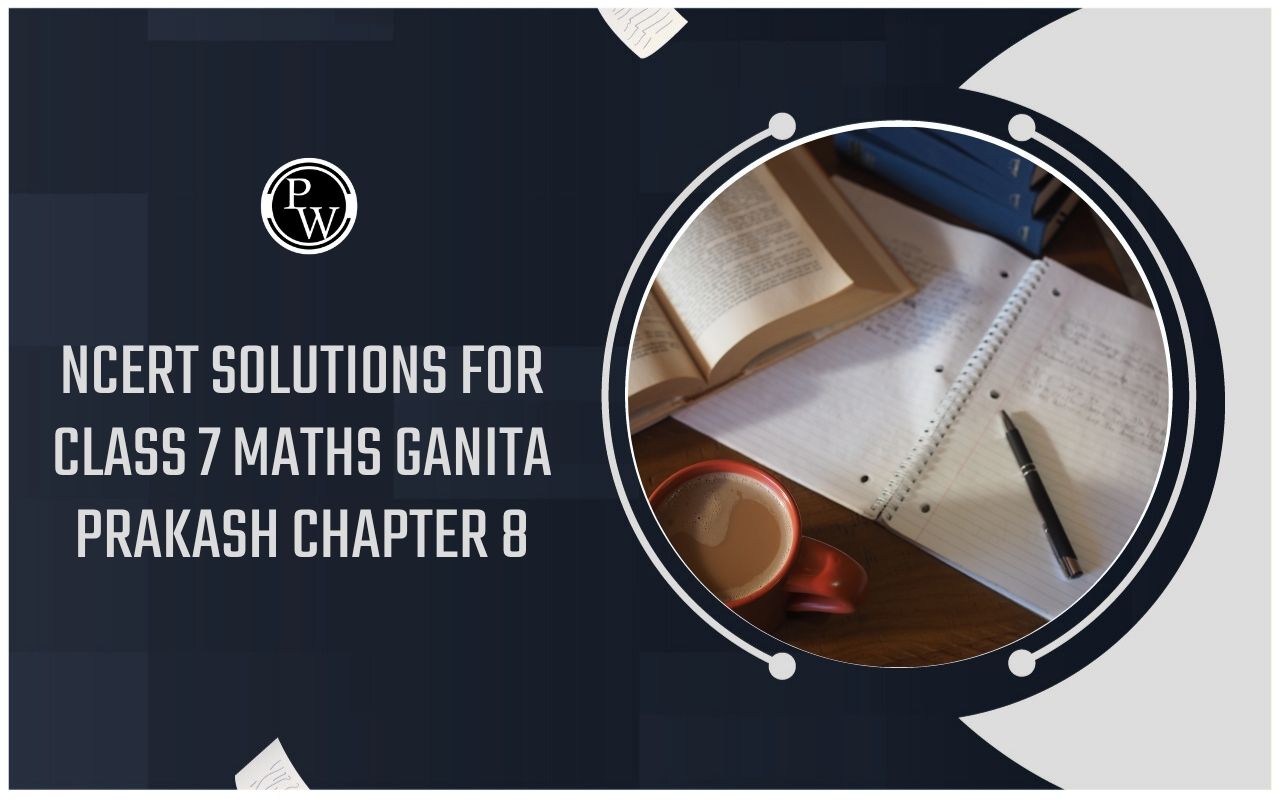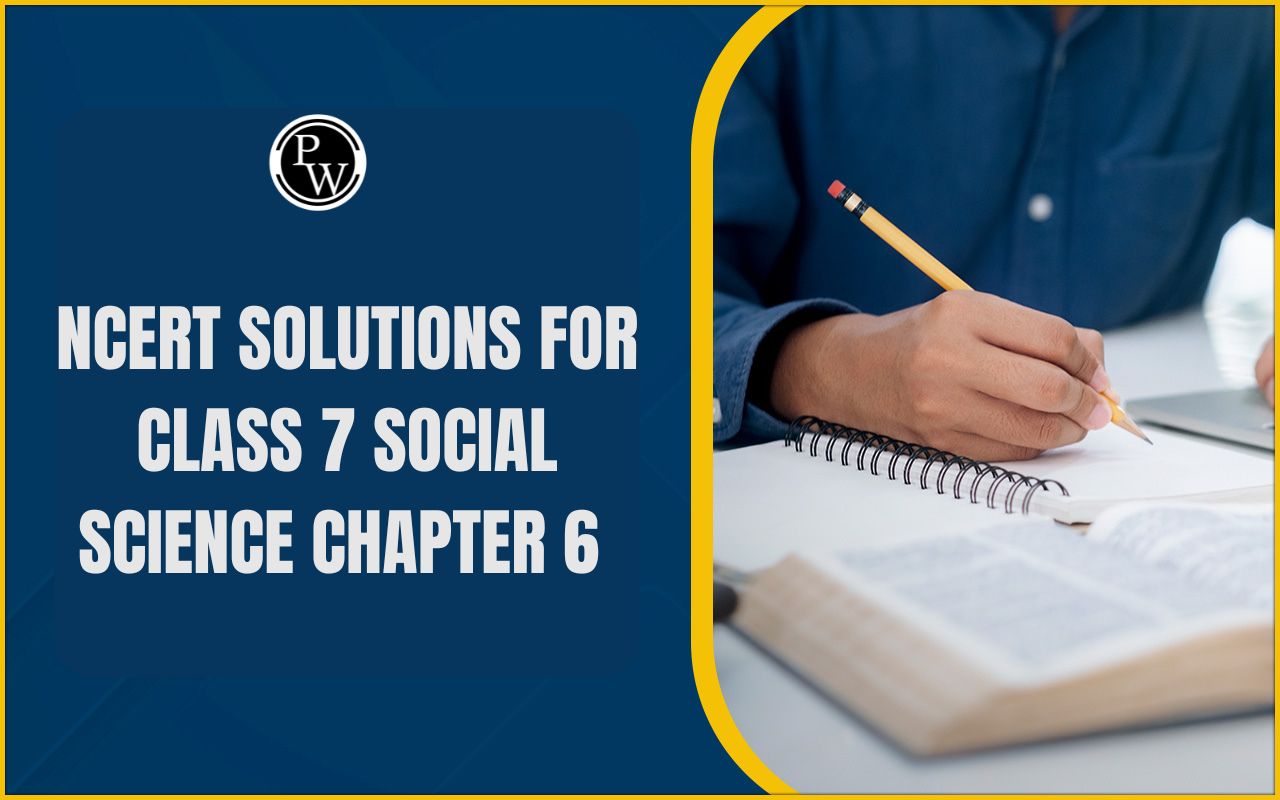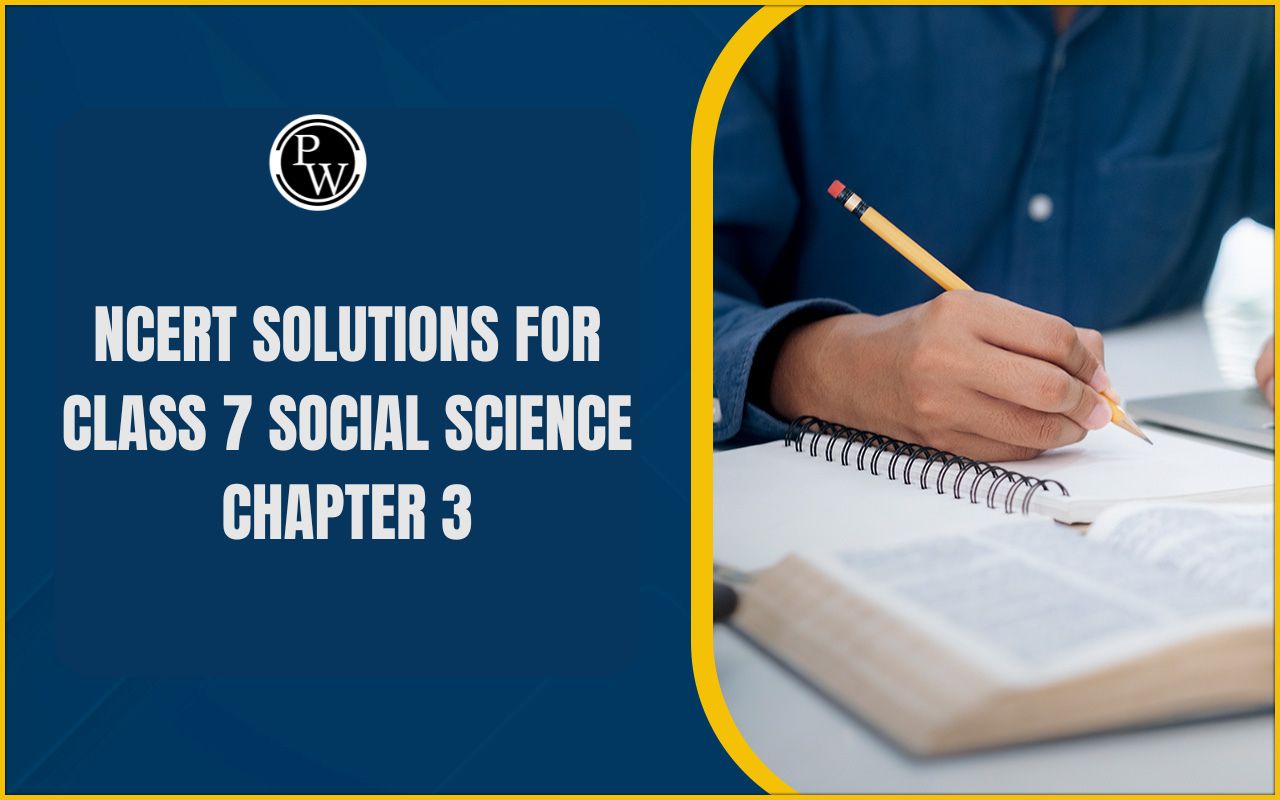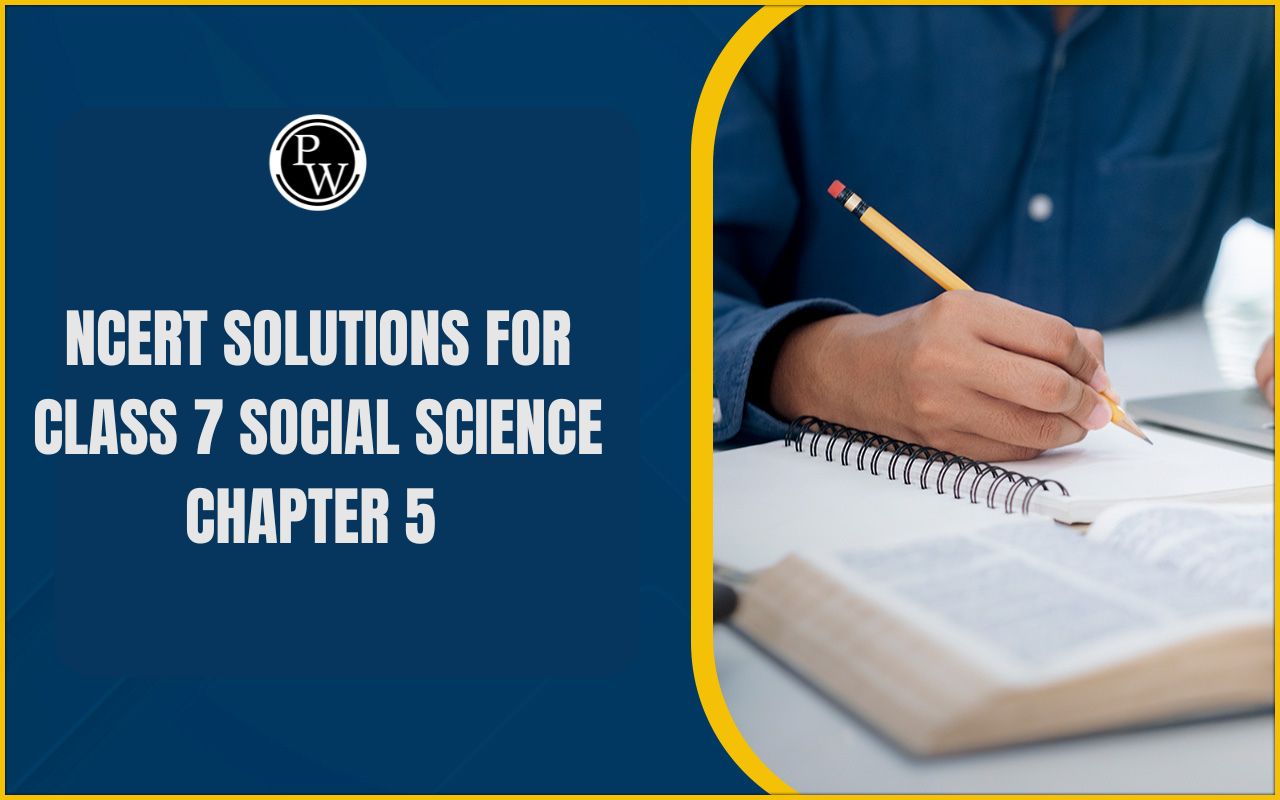
NCERT Solutions for Class 7 English Honeycomb Chapter 3
NCERT Solutions for Class 7 English Honeycomb Chapter 3: On this page, you'll find concise and reliable NCERT Solutions for Class 7 English Honeycomb Chapter 3, "Gopal and the Hilsa-fish." Our experts have carefully developed these NCERT Solutions for Class 7 following CBSE guidelines and have addressed every question in the textbook. The chapter "Gopal and the Hilsa-fish" narrates a tale showcasing the cleverness of a courtier named Gopal. He is challenged to halt discussions about the Hilsa-Fish, and Gopal, who accepts the challenge, emerges victorious. Find all the solutions to Honeycomb Chapter 3 here!CBSE Board Exam Centre List 2024
NCERT Solutions for Class 7 English Honeycomb Chapter 3 Gopal and the Hilsa-fish
NCERT Solutions for Class 7 English Honeycomb Chapter 3 Gopal and the Hilsa-Fish are very important for students' exam preparations. Find the detailed solutions here:Working with the text
Answer the following questions: Question 1. Why did the king want no more talk about the hilsa-fish? Answer: The king did not want to listen any more talk about the hilsa-fish because everyone in the entire kingdom kept talking only about the hilsa-fish and this irritated the king. Question 2 . What did the king ask Gopal to do to prove that he was clever? Answer: The king asked Gopal to prove that he was clever so that while Gopal was on this challenge, he would try as much as possible that people didn’t speak anything about the Hilsa-fish. Question 3 . What three things did Gopal do before he went to buy his hilsa-fish? Answer: The three things that Gopal did before he went to buy his hilsa-fish were:- i) He half-shaved his face.
- ii) He smeared ash on his body.
 Question
5
. Explain why no one seemed to be interested in talking about the hilsa-fish which Gopal had bought.
Answer:
The reason why no one seemed to be interested in talking about the hilsa-fish which Gopal had bought was that people were more surprised by his appearance – half-shaved face, ash on the body and rags instead of proper clothes. This made them wonder what had happened to him.
Question 6.
Write ‘True’ or ‘False’ against each of the following sentences.
Question
5
. Explain why no one seemed to be interested in talking about the hilsa-fish which Gopal had bought.
Answer:
The reason why no one seemed to be interested in talking about the hilsa-fish which Gopal had bought was that people were more surprised by his appearance – half-shaved face, ash on the body and rags instead of proper clothes. This made them wonder what had happened to him.
Question 6.
Write ‘True’ or ‘False’ against each of the following sentences.
(i) The king lost his temper easily. _________
(ii) Gopal was a madman. _________
(iii) Gopal was a clever man. _________
(iv) Gopal was too poor to afford decent clothes. _________
(v) The king got angry when he was shown to be wrong. _________
Answer: (i) The king lost his temper easily. True (ii) Gopal was a madman. False (iii) Gopal was a clever man. True (iv) Gopal was too poor to afford decent clothes. False (v) The king got angry when he was shown to be wrong. False Question 1. Notice how in a comic book, there are no speech marks when characters talk. Instead, what they say is put in a speech ‘bubble’. However, if we wish to repeat or ‘report’ what they say, we must put it into reported speech.Change the following sentences in the story to reported speech. The first one has been done for you.
For e,g, (i) How much did you pay for that hilsa?The woman asked the man how much he had paid for that hilsa.
(ii) Why is your face half-shaven?
Gopal’s wife asked him _________________.
(iii) I accept the challenge, Your Majesty.
Gopal told the king _________________.
(iv) I want to see the king.
Gopal told the guards _________________.
(v) Bring the man to me at once.
The king ordered the guard _________________.
Answer:
(ii) Gopal’s wife asked him why his face was half-shaven. (iii) Gopal told the king that he accepted the challenge. (iv) Gopal told the guards that he wanted to see the king. (v) The king ordered the guard to bring the man to him at once. Question 2. Find out the meaning of the following words by looking them up in the dictionary. Then use them in sentences of your own.Challenge; mystic; comical; courtier; smearing
Answer: Challenge: Radhika challenged Kshama to the debate competition. Mystic: Some sages are considered to have mystic powers. Comical: Shinchan is a comical character. Courtier: The courtier had to obey the orders of the king. Smearing: Smearing oil before playing holi helps in getting the colour off the skin easily.| CBSE Syllabus Class 7 | |
| CBSE Class 7 English Syllabus | CBSE Class 7 Math Syllabus |
| CBSE Class 7 Social Science Syllabus | CBSE Class 7 Science Syllabus |
Picture Reading
Question 2. Now ask your partner questions about each picture. (i) Where is the stag? Answer: The stag was by the side of a pond. (ii) What is he doing? Answer: He is watching his reflection in the water of the pond. (iii) Does he like his antlers (horns)? Answer: Yes, he liked his antlers. (iv) Does he like his legs? Answer: No, he does not like his legs as they are very thin. (v) Why is the stag running? Answer: The stag is running because hunters are chasing it. (vi) Is he able to hide in the bushes? Answer: No, he is not able to hide in the bushes because his horns get stuck in the bushes. (vii) Where are the hunters now? Answer: The hunters are behind the stag. (viii) Are they closing in on the stage? Answer: Yes, they were getting closer to the stag. (ix) Is the stag free? Answer: Yes, the stag is free. (x) What does the stag say about his horns and his legs? Answer: The stag says that he was proud of his horns but it could have caused the stag’s death. The legs he was ashamed of saved his life. Question 3. Now write the story in your own words. Give it a title. Answer: Horns and the Legs Once upon a time, there lived a stag. One day he was about to drink water when he saw his reflection in the water of the pond. He felt proud to have such beautiful horns. Then, he looked at his legs and thought that they were so thin and ugly. One day, some hunters came into the jungle and began chasing the stag. The stag started to run, but his horns got stuck in the bushes. He then put in more effort and ran away fast. When he was out of danger, he thought that the horns that he was so proud of, could have gotten him killed. Moreover, the legs, which he considered to be ugly, saved him. Question 4. Complete the following word ladder with the help of the clues given below.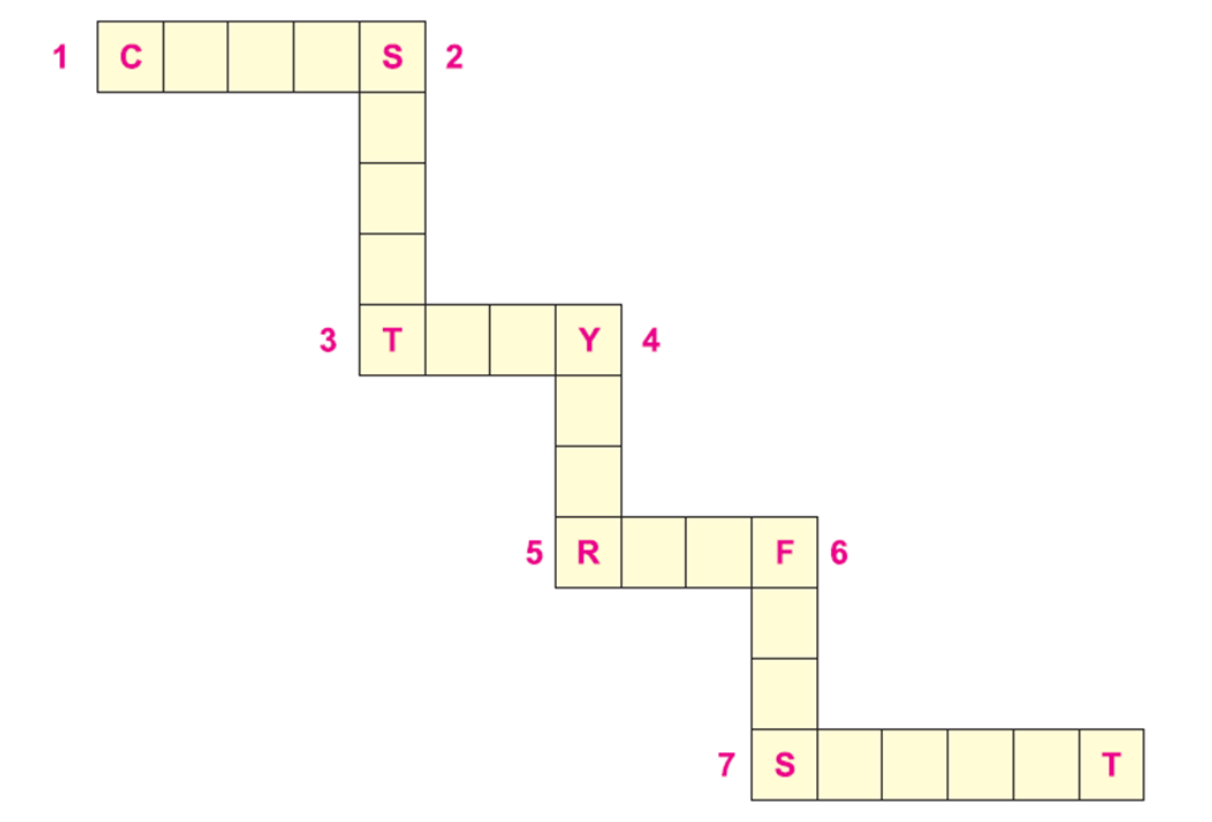
- Mother will be very ________ if you don’t go to school.
- As soon as he caught ________ of the teacher, Mohan started writing.
- How do you like my ________ kitchen garden? Big enough for you, is it?
- My youngest sister is now a ________ old.
- Standing on the ________, he saw children playing on the road.
- Don’t make such a ________. Nothing will happen.
- Don’t cross the ________ till the green light comes on.
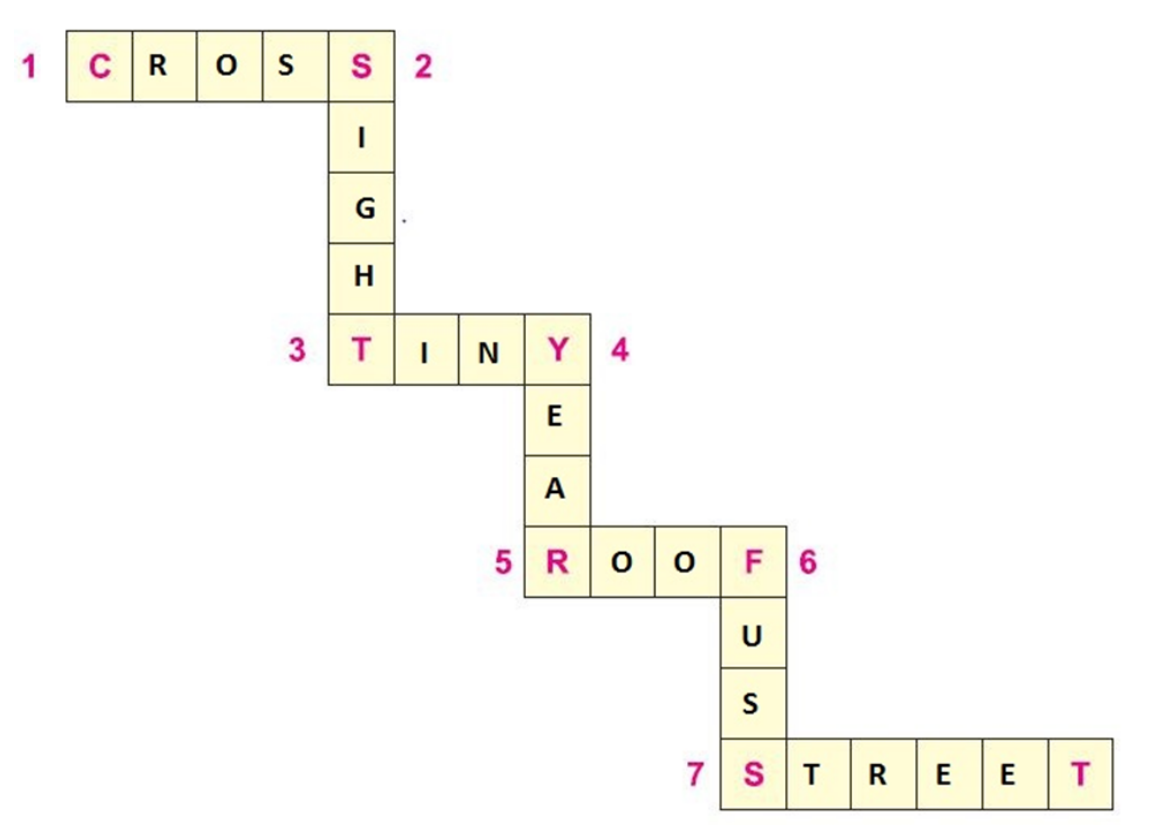
- Mother will be very cross if you don’t go to school.
- As soon as he caught sight of the teacher, Mohan started writing.
- How do you like my tiny kitchen garden? Big enough for you, is it?
- My youngest sister is now a year old.
- Standing on the roof , he saw children playing on the road.
- Don’t make such a fuss . Nothing will happen.
- Don’t cross the street till the green light comes on.
Benefits of NCERT Solutions for Class 7 English Honeycomb Chapter 3
Chapter 3 of Class 7 English, "Gopal and the Hilsa Fish," holds deep meanings. Many students see it as a chapter where they can score well if they study it thoroughly. It's crucial for students to understand how to present their answers effectively to score high marks. CBSE has provided guidelines for writing answers to ensure examiners deduct no marks. To aid students during exams, NCERT has created solutions for Class 7 English Honeycomb. These solutions offer a comprehensive understanding of the text and its underlying meanings. They also assist students in crafting proper answers during examinations. Students will greatly benefit from these NCERT solutions for Class 7 Honeycomb Chapter 3 for several reasons.Exam-Specified Study Material
The NCERT solutions for Class 7 English Chapter 3, "Gopal and the Hilsa Fish," have been crafted to assist students in preparing for exams. The content is explained in a straightforward manner, making it easy to understand. Each underlying message is thoroughly explored, and guidance is provided on how to approach questions related to the chapter. By studying these notes, students will learn how to construct answers effectively, reducing the risk of marks being deducted by examiners. Unlike other literature subjects where marks may be deducted based on subjective impressions, using the NCERT solutions for Class 7 English Chapter 3 ensures a more structured and reliable approach to answering questions.CBSE-Specified Answering Rules Are Followed
Previously, examiners could give marks based on their own impressions of the answers, leading to differences in marks due to varying mindsets. To address this issue, the Central Board of Secondary Education (CBSE) has introduced rules to prevent examiners from deducting marks arbitrarily. These rules outline guidelines for crafting ideal answers. NCERT Class 7 English Honeycomb Chapter 3 solutions incorporate these rules and offer sample answers. By practising writing answers using these NCERT solutions for Class 7 English Honeycomb Chapter 3, students can aim for higher marks in exams.Concise Notes for Proper Revision
The subject of English literature covers a lot of ground. It's nearly impossible for every student to go through the entire syllabus the night before the exam. They wish for a brief list of important points that cover everything. The NCERT English book for Class 7 Honeycomb solutions Chapter 3 offers just that. It condenses the entire chapter into key points in these notes. Additionally, it gives model answers to help students write engaging responses in any exam. These key points help students grasp the main idea of the topic and be well-prepared for exams.NCERT Solutions for Class 7 English Honeycomb Chapter 3 PDF
How to Prepare with NCERT Solutions for Class 7 English Honeycomb Chapter 3
Preparing with NCERT Solutions for Class 7 English Honeycomb Chapter 3 involves a structured approach to understanding the content, practising questions, and mastering the concepts covered in the chapter. Here's a detailed guide on how to prepare effectively: 1. Understand the Chapter Theme:- Start by reading the chapter thoroughly to grasp the central theme, characters, and the main events.
- Identify key topics and concepts discussed in the chapter.
- Read the chapter from your NCERT English Honeycomb textbook attentively.
- Pay close attention to the language used, character descriptions, plot development, and any moral or thematic messages conveyed.
- Analyse the questions given at the end of the chapter. Understand the types of questions asked - whether they are factual, analytical, or require critical thinking.
- Categorise questions based on their difficulty level: easy, moderate, or challenging.
- Use NCERT Solutions for Class 7 English Honeycomb Chapter 3 as a reference to clarify doubts and understand the solutions to textbook questions.
- NCERT Solutions provide step-by-step explanations, making it easier to comprehend the answers.
- After understanding the solutions provided, attempt the questions on your own.
- Refer back to the solutions if you get stuck or make errors. Understanding where you went wrong is crucial for improvement.
- Review important concepts, themes, and literary devices discussed in the chapter.
- Make notes or flashcards for quick revision of key points.
- Engage in discussions with classmates or teachers regarding the chapter's content, themes, and characters.
- Participate in group activities or debates related to the chapter to enhance your understanding.
- Write summaries of the chapter in your own words. This will help reinforce your understanding of the content and improve your retention.
- If you find certain concepts challenging, seek additional resources such as reference books, online tutorials, or videos to gain a better understanding.
- Utilise online platforms or educational apps that offer interactive learning resources related to the chapter.
- Schedule regular revision sessions to keep the chapter content fresh in your mind.
- Review NCERT Solutions periodically to reinforce your understanding and retention of the chapter.
- Practice solving past years' question papers to familiarise yourself with the exam pattern and question types.
- Analyse your performance and identify areas where you need improvement.
NCERT Solutions for Class 7 English Honeycomb Chapter 3 FAQs
Are there any supplementary resources that complement NCERT solutions for Chapter 3?
Can NCERT solutions be used for revision purposes before exams?
How can teachers integrate NCERT solutions into their classroom teaching?
Are NCERT solutions helpful for students preparing for competitive exams?
Where can I find additional assistance if I encounter difficulties with NCERT solutions for Chapter 3?

